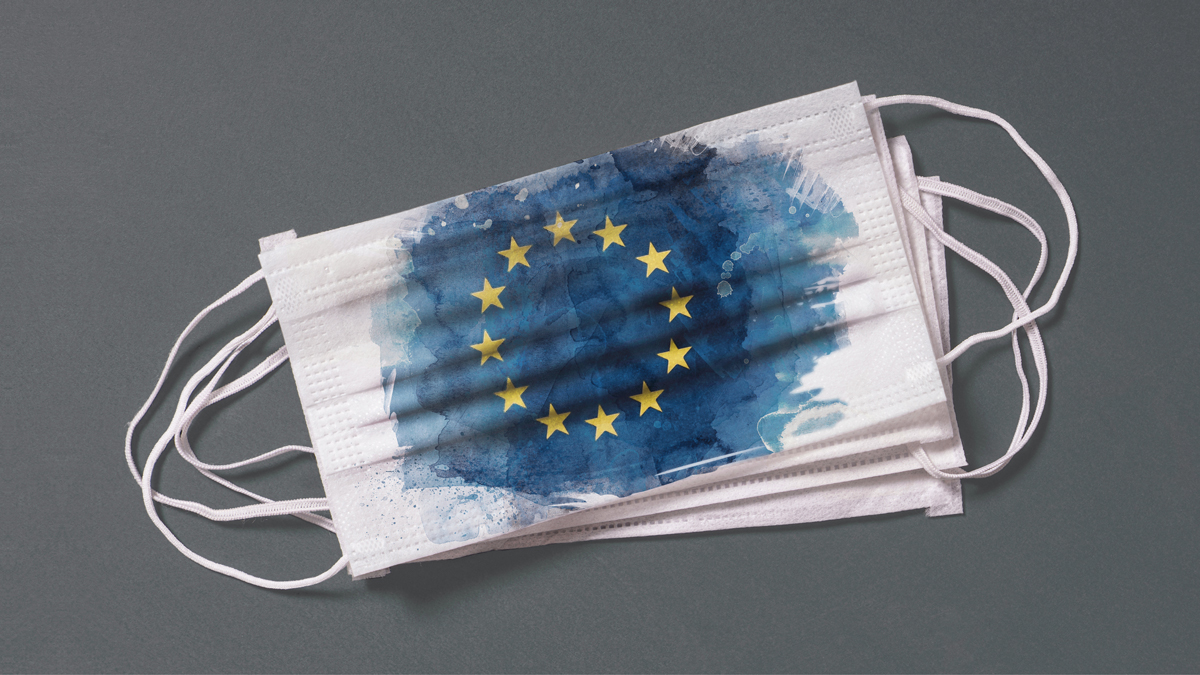Reto Cueni
Chief Economist

Learn in this update, why the outlined recovery fund gives Germany a bigger influence on the flow of money. And can we expect the ECB to help again?

Solidarity without unlimited liability: Can the new “agreement” be an immune booster for the stability of the Euro (and the EU)? © GettyImages
Yesterday’s EU summit ended without any decision about how to respond jointly to the current Covid-19 crisis. Although there seemed to be agreement on the issue of a joint action in the form of a recovery fund for Europe, the main obstacle is the decision on whether to give money in the form of grants or loans, according to French Prime Minister Emanuel Macron. Leaders tasked the EU commission to come up urgently with a new proposal for a long-term recovery fund of sufficient magnitude. EU Commission President Ursula von der Leyen suggested that the fund should mobilize 1 trillion Euro, about 8% of Eurozone’s GDP, in addition to the already agreed package of 540 billion Euro. A new summit will be set up on May 6.
Italian’s Prime Minister Conte spoke of a “great progress, unthinkable until a few weeks ago”, while Chancellor Merkel’s comments suggested that she expects the EU to agree on a new package in May and that the recovery fund will likely be installed in the EU budget for 2021-27. This way, the flow of money can be controlled by established EU institutions (e.g. EU Commission, Parliament and court of auditors), where Germany has more saying than in a potentially new extra fund set up. We assume that the fund could be divided into loans and subsidies and financed by larger budget contributions, but could likely also entail a joint issue of debt by the EU Commission. The Netherlands and smaller northern EU countries are still opposed to subsidies and the joint debt issuance.
The weak signal of solidarity and decisiveness will not help in lowering the pressure on the widening of the spreads between sovereign debt of southern and core EU countries. Uncertainty about the stability of the Euro will increase again and let the currency weaken. We expect the ECB to help again and to send additional signals of “readiness to act” at the monetary policy meeting next week in order to keep spreads under control. The after-summit communication made clear that the EU leaders now tread the subject with more caution and that they are on their way to find a balanced solution. As usual, the EU-style of bargaining lacks any strong signaling effect but also baby steps led to a decision in the past.

Chief Economist
Reto Cueni, PhD ist seit Oktober 2014 Senior Economist im OCIO & Solutions Team von Vontobel Asset Management. Vor seinem Eintritt bei Vontobel war er von 2009 bis 2014 an der Wirtschaftswissenschaftlichen Fakultät der Universität Zürich tätig. In dieser Funktion führte er empirische Studien durch, hielt Vorträge bei Konferenzen, veröffentlichte wissenschaftliche Beiträge und hielt Vorlesungen im Rahmen von Master-Programmen. Er begann seine Laufbahn 2006 im Investment Banking Department von Vontobel als quantitativer Analyst im Aktienresearch. Reto Cueni studierte an der Universität Zürich, der Universita degli Studi in Siena und der Columbia University in New York. Er hat einen Master sowie einen Doktorgrad in Volkswirtschaftslehre der Universität Zürich.
Verstehen Sie, wie das Coronavirus sich auf die Wirtschaft und die Finanzmärkte auswirkt. Unsere Expertinnen und Experten analysieren den «Coronavirus Market Impact» anhand von Themen wie: